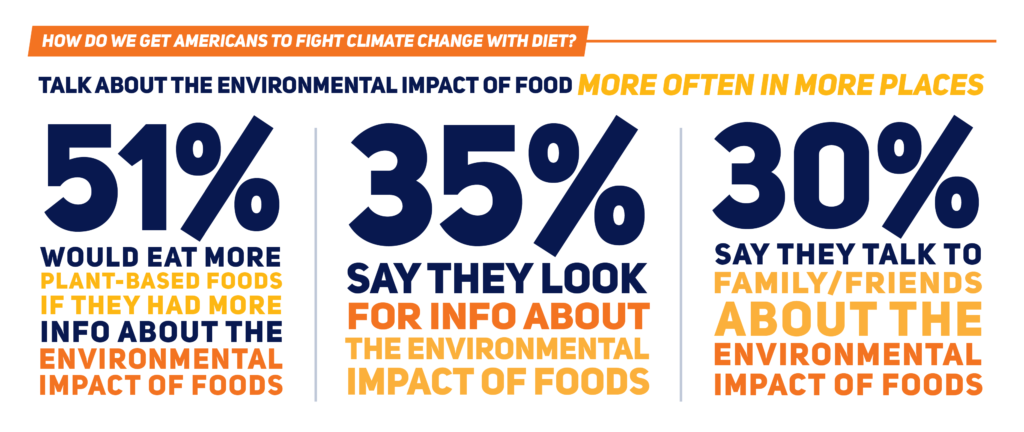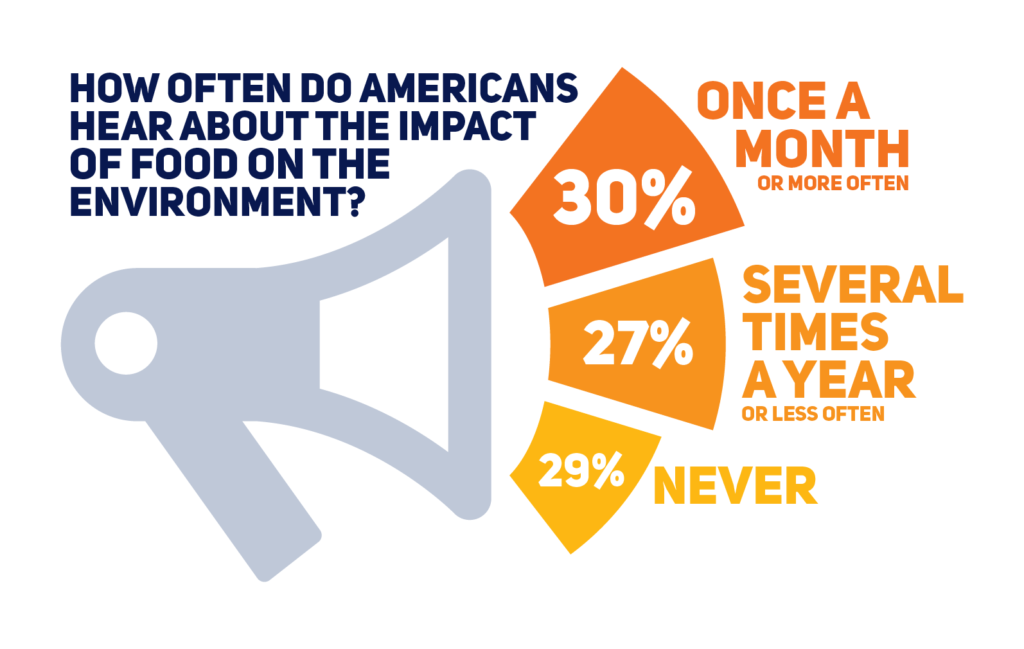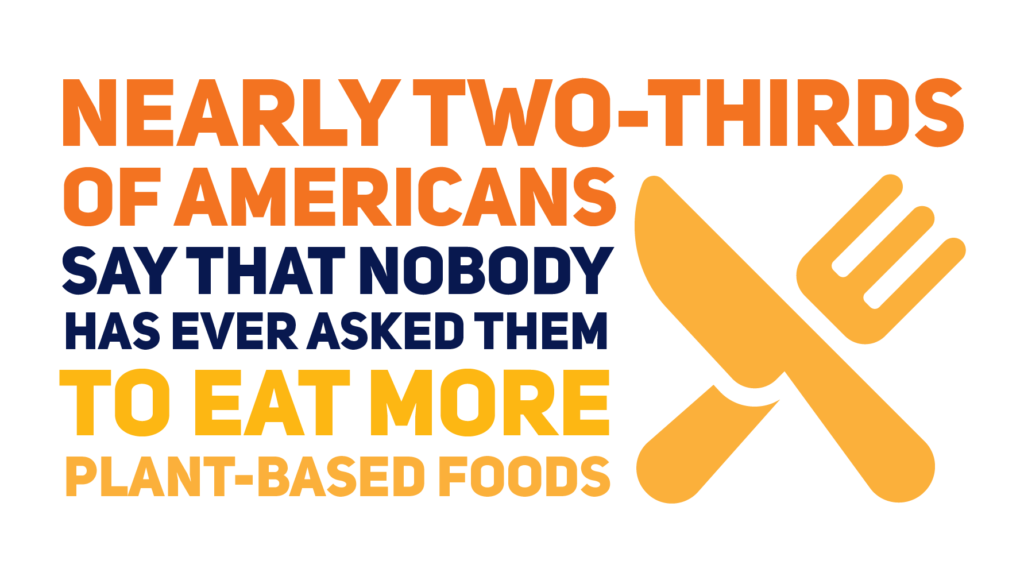Foodprints for the Future
Climate Change and the American Diet
A new report released by Earth Day Network and the Yale Program on Climate Change Communication finds that American consumers are hungry for more climate-friendly plant-based diets, but they need more information.
The report, "Climate Change and the American Diet," found that more than half (51%) of Americans surveyed said they would eat more plant-based foods if they had more information about the environmental impacts of their food choices. However, 70% rarely or never talk about this issue with friends or family. Nearly two-thirds of Americans surveyed report having never been asked to eat more plant-based foods, and more than half rarely or never hear about the topic in the media.
Listen to the full audio from the February 13 report release event:
Earth Day Network and Yale Program on Climate Change Communication
New Report: Climate Change and the American Diet
TOPLINE FINDINGS:
Although a majority of Americans do not consider themselves to be vegetarians or vegans, most Americans are willing to eat more plant-based foods, and more than half are willing to eat less red meat.
• While only 4% of Americans say they are either vegan (1%) or vegetarian (3%), the vast majority of individuals surveyed (94%) say they are willing to eat more fruit and vegetables, with six in ten (62%) saying they are "very" willing

Cost, taste, and convenience can be motivators or barriers to purchasing or eating plant-based foods.
• About half of Americans (49%) think a meal with a plant-based main course (fruit, vegetables, meat/dairy alternatives) is more expensive than a meat-based main course (beef, chicken, fish, etc.), while fewer think a plant-based main course is less expensive (14%).
• More than half of Americans (58%) say that it costs too much to buy plant-based foods, but 63% say they would be willing to eat more plant-based foods instead of meat if plant-based foods cost less than meat options.

Health is the top motivation for purchasing or eating plant-based foods, and a majority of Americans say environmental impacts are personally important.
• When asked about reasons (i.e., motivations) for purchasing or eating plant-based foods (fruit, vegetables, meat/dairy alternatives), majorities of Americans say the following are at least "moderately"
important to them: their health (91%), how food companies affect the environment (71%), and/or helping to reduce global warming (64%).

Lower-income Americans are more likely than middle- and higher-income Americans to say they lack access to nearby grocery stores and/or fresh produce.
• Lower-income Americans (households earning less than $50,000 annually) are more likely to say they lack access to a nearby grocery store/market (20%) compared to middle- (11%) and higher-income (9%) Americans.

Although most Americans think that the production of meat contributes at least "a little" to global warming, many do not make the connection between food and global warming.
• Although most Americans think that if everyone ate a more plant-based diet it would reduce global warming at least "a little," more than four in ten Americans say it would not reduce global warming at all (23%) or do not know (19%).
• Three in ten Americans say they hear about the impact of food choices on global warming in the media either "at least once a month" (16%) or "at least once a week" (13%), while four in ten say they hear about it "once a year or less often" (11%) or "never" (29%).

Although most Americans think reducing food waste and/or composting would reduce global warming at least "a little," many engage in food waste behavior, and most do not compost food waste.
• A majority of Americans say they "rarely" (16%) or "never" (56%) compost food waste, while only about three in ten Americans compost food waste "sometimes" (14%), "often" (9%) or "always" (6%).

Americans who are among the "Alarmed" or "Concerned" in Global Warming's Six Americas are more willing than other Americans to adopt a more plant-based diet and engage in pro-climate food behaviors. The Alarmed are the most willing and most engaged.
• More than six in ten of the Alarmed are willing to eat more plant-based meat alternatives (77% vs. 55% of the Concerned and 39% of all other Americans), eat less red meat (66% vs. 61% of the Concerned and 42% of all others), and/or use dairy alternatives instead of dairy-based milk or cream (63% vs. 47% of the Concerned and 33% of all others). About half of the Alarmed (49%) and Concerned (49%) are willing to eat less dairy (vs. 32% of all other Americans).
Hungry for more?
Visit Foodprints for the Future and fight climate change with diet change